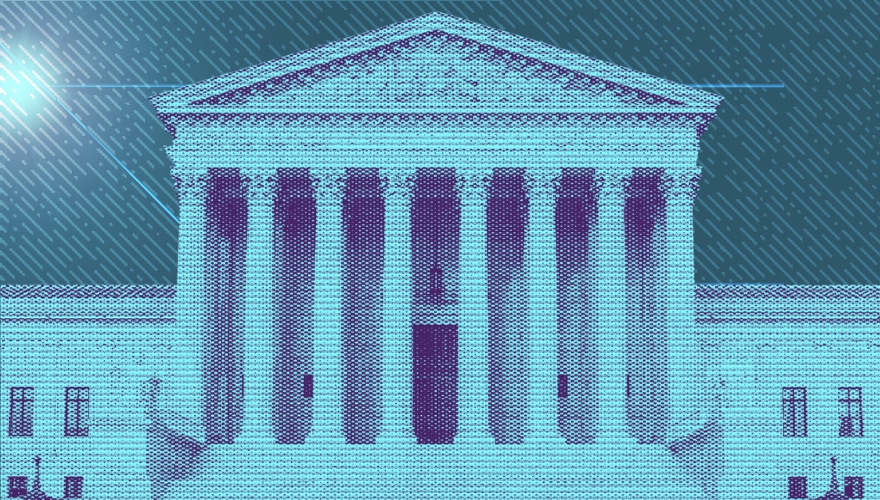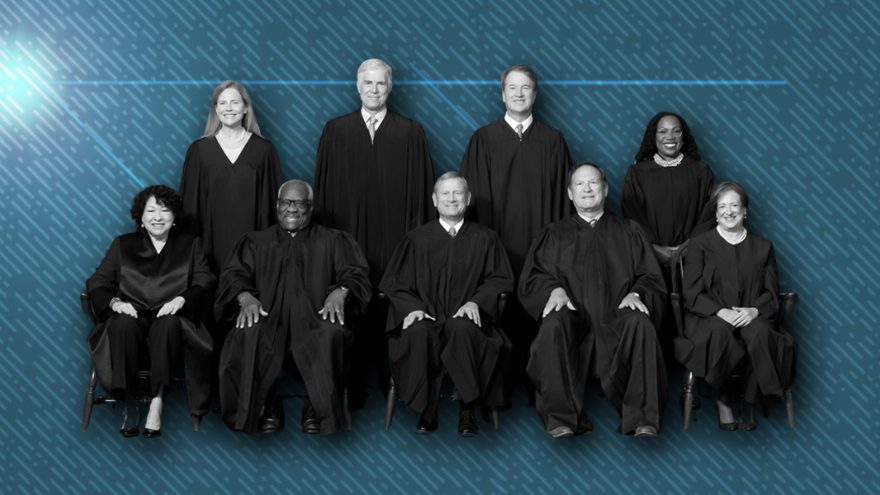The U.S. Supreme Court delayed ruling on a First Amendment case challenging content restrictions on social media.
The court unanimously opted to remand the lawsuit, brought by NetChoice against Florida and Texas, to a lower court. The trade association challenged laws in Florida and Texas establishing consequences for social media companies for restricting posts created by conservative users.
“Neither the Eleventh Circuit nor the Fifth Circuit conducted a proper analysis of the facial First Amendment challenges to Florida and Texas laws regulating large internet platforms,” stated the court. “The next order of business is to decide which of the laws’ applications violate the First Amendment, and to measure them against the rest. For the content-moderation provisions, that means asking, as to every covered platform or function, whether there is an intrusion on protected editorial discretion. And for the individualized-explanation provisions, it means asking, again as to each thing covered, whether the required disclosures unduly burden expression.”
Justice Elena Kagan authored the court’s decision, noting that in 1997 the court felt obligated to define what the Internet is as part of a previous case.
“These years have brought a dizzying transformation in how people communicate, and with it a raft of public policy issues. Social-media platforms, as well as other websites, have gone from unheard-of to inescapable,” wrote Kagan.
She continued:To the extent that social media platforms create expressive products, they receive the First Amendment’s protection. And although these cases are here in a preliminary posture, the current record suggests that some platforms, in at least some functions, are indeed engaged in expression. In constructing certain feeds, those platforms make choices about what third-party speech to display and how to display it.
…Traditional publishers and editors also select and shape other parties’ expression into their own curated speech products. And we have repeatedly held that laws curtailing their editorial choices must meet the First Amendment’s requirements. The principle does not change because the curated compilation has gone from the physical to the virtual world.
Kagan added that “a court must understand what kind of government actions the First Amendment prohibits” and that the First Amendment “does not go on leave when social media are involved.”
Justice Samuel Alito offered a concurring opinion and was joined by Justices Clarence Thomas and Neil Gorsuch.
“The only binding holding in these decisions is that NetChoice has yet to prove that the Florida and Texas laws they challenged are facially unconstitutional. Because the majority opinion ventures far beyond the question we must decide, I concur only in the judgment,” he wrote.
“When confronted with the application of a constitutional requirement to new technology, we should proceed with caution,” added Alito. “While the meaning of the Constitution remains constant, the application of enduring principles to new technology requires an understanding of that technology and its effects. Premature resolution of such questions creates the risk of decisions that will quickly turn into embarrassments.”
Both sides of the litigation claimed the court’s decision as a victory.
NetChoice said it had won at the Supreme Court, stating in a press release that the nation’s highest court had ruled in its favor.
“Today’s ruling from the Supreme Court is a victory for First Amendment rights online,” said Chris Marchese, Director of the NetChoice Litigation Center. “As our cases head back to the lower courts for consideration, the Supreme Court agreed with all our First Amendment arguments. Free speech is a cornerstone of our republic.”
“As we prepare to celebrate the 248th anniversary of American independence this week, we are gratified to see the Supreme Court acknowledge the Constitution’s unparalleled protections for free speech, including the world’s most important communications tool, the internet,” Marchese added.
Florida Attorney General Ashley Moody claimed in her statement that the court has unanimously sided with Florida.
“We are pleased that SCOTUS agreed with Florida and rejected the lower court’s flawed reasoning—invalidating our social media law. While there are aspects of the decision we disagree with, we look forward to continuing to defend state law,” she wrote on X.
Texas Attorney General Ken Paxton took a more neutral stance, acknowledging the case’s return to the lower courts and vowing to “keep fighting for our law that protects Texans’ voices.”
“I went before SCOTUS to defend our landmark Texas law that forbids social media companies from discriminating on the basis of viewpoint. Big Tech censorship is one of the biggest threats to free public discourse and election integrity,” he said on X. “No American should be silenced by Big Tech oligarchs.”

